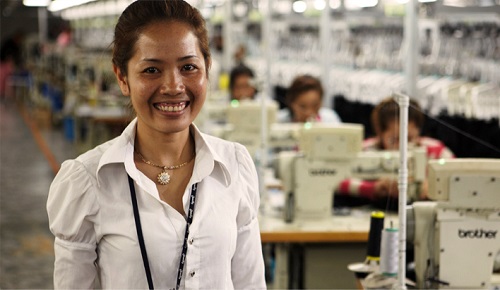

Workers’ wellbeing is of prime importance when it comes to manufacturing industries. Workers who have life skills, it has been found, make fewer mistakes, are more productive at work and have lower rates of absenteeism. Besides, if attention is paid to workers’ wellbeing and investment is made thereof, it has several societal benefits, which is the main step in bettering the industry’s work conditions and dealing with the humanitarian crisis of the industry.
Why workers wellbeing is important?
Workers’ wellbeing was promoted by Henry Ford, who was also the first business leader to do this, albeit for business reasons. Costs were rising and production of Model T was being delayed due to worker absences and turnovers. All this was seriously affecting the business’s bottom line. Thus, developing countries that wish to regain their manufacturing competitiveness have to only follow Ford’s example of workers’ wellbeing equals productivity.
Because when their wellbeing is looked into, they feel good about themselves and with their work. And when they’re empowered to become leaders of their own lives, they become motivated to innovate and be creative. Therefore, when workers are equipped with knowledge to develop their emotional and cognitive social skills, along with experiencing life benefits, they become active contributors to their work environments. These skills could range from health, to education, or work.
If a worker, for instance have access to education on civic participation or making financial goals, they become equipped with personal agency, teamwork and leadership skills. If they are in charge of their own health, their mental or reproductive rights, their work and personal lives improve. In totality, all this leads to greater productivity and reduced costs for businesses.
Satisfied worker leads to more productivity
Ileana López, Head of Sustainability at the C&A Foundation, Mexico, wanted to see if Yo Quiero Yo Puedo would be willing to test its life-skills and personal-agency programmes with seamstresses in a dress factory, a few years ago. Mexico is known for its high number of working hours and very low productivity. And at Yo Quiero Yo Puedo (IMIFAP), there are many reports from Mexican businesses of the high rotation of personnel, increasing absenteeism, low worker morale, too many mistakes along the production line, and not enough productivity.
Yo Quiero Yo Puedo, with the C&A’s support, designed and launched the programme—‘Yo quiero, yo puedo… cuidarme y ser productive’ (I want to, I can… take care of myself and be productive).
In this programme, supervisors undergo 40 hours of life skills and knowledge facilitation, and they in turn replicate the programme during 15 minutes a week with their seamstresses. More than 1,200 supervisors and workers have participated and till date 15 companies have been a part of this programme. The programme has made a statistically (and humanly) significant difference in work satisfaction and productivity.
Satisfaction within the workplace increased by 37.5 per cent, reported the participating companies, and the number of supervisors who stated they had a better personal-work life balance tripled. Also, absenteeism dropped by 25 per cent and the number of pieces produced with mistakes was reduced by 60 per cent. Factories improved their efficiency and workers found their power in less than 1,500 minutes of interaction.
Thus, concluding, it is safe to assume the enabling workers’ wellbeing isn’t just limited to the workplace. People recognise they have greater rights and more possibilities, when empowered to direct their own lives and act as agents of change. So, improving workers’ wellbeing should not be transactional (e.g., giving people money, gifts, clothes, etc.) but it must be an intrinsic empowerment.
www.candafoundation.org












